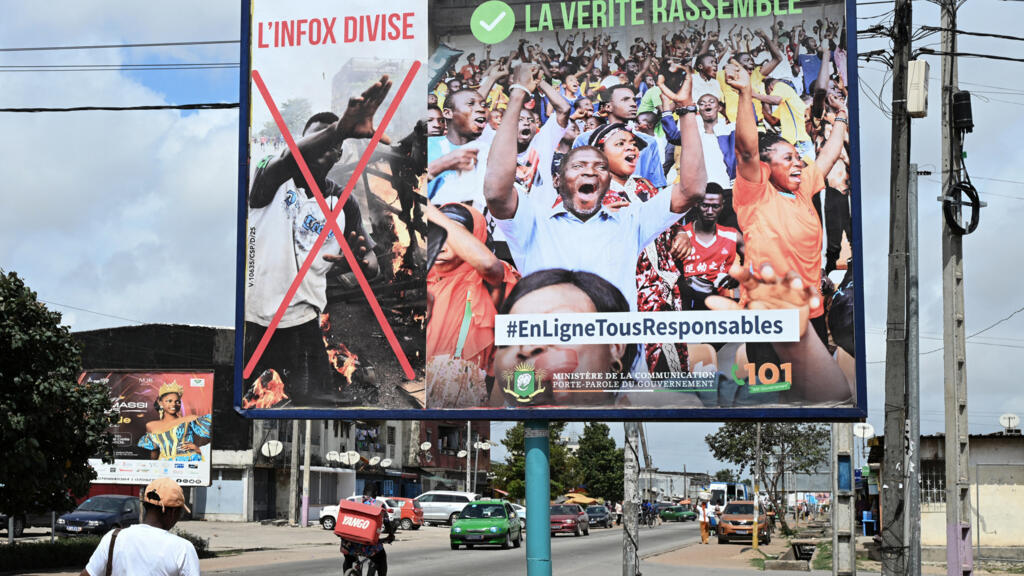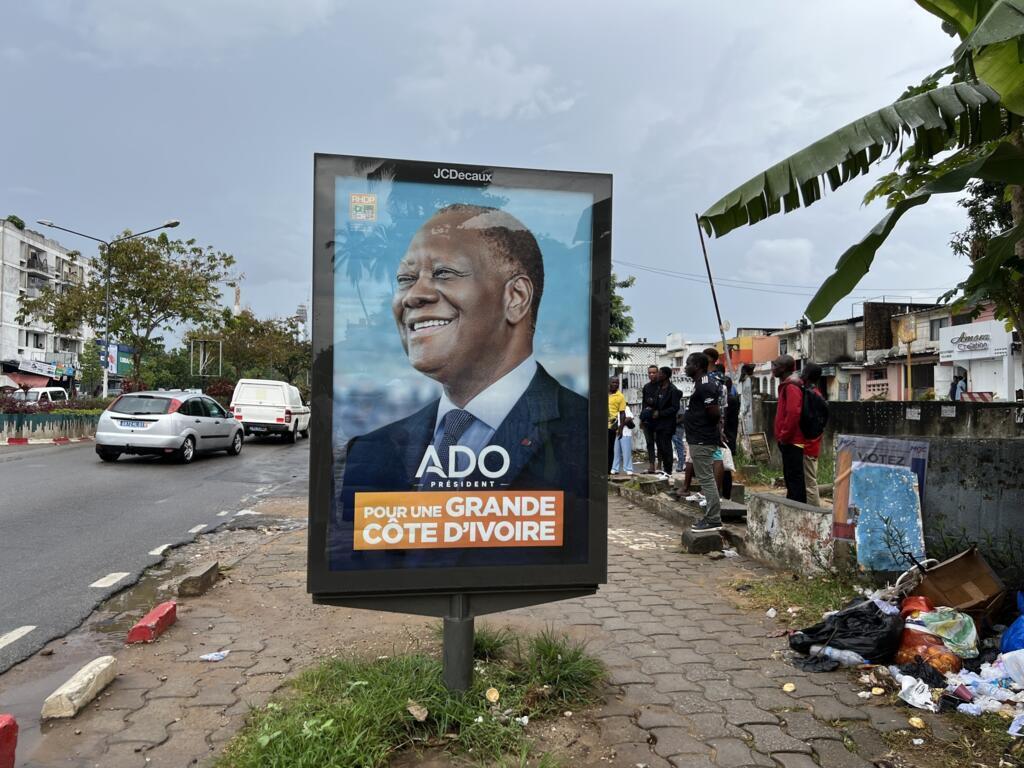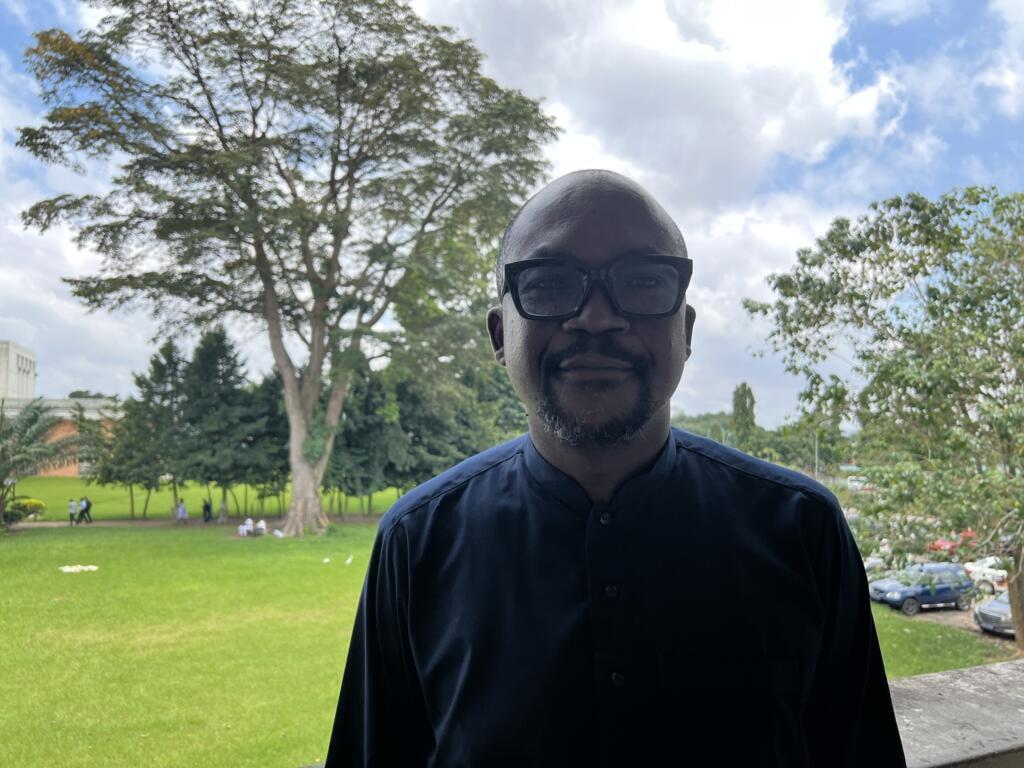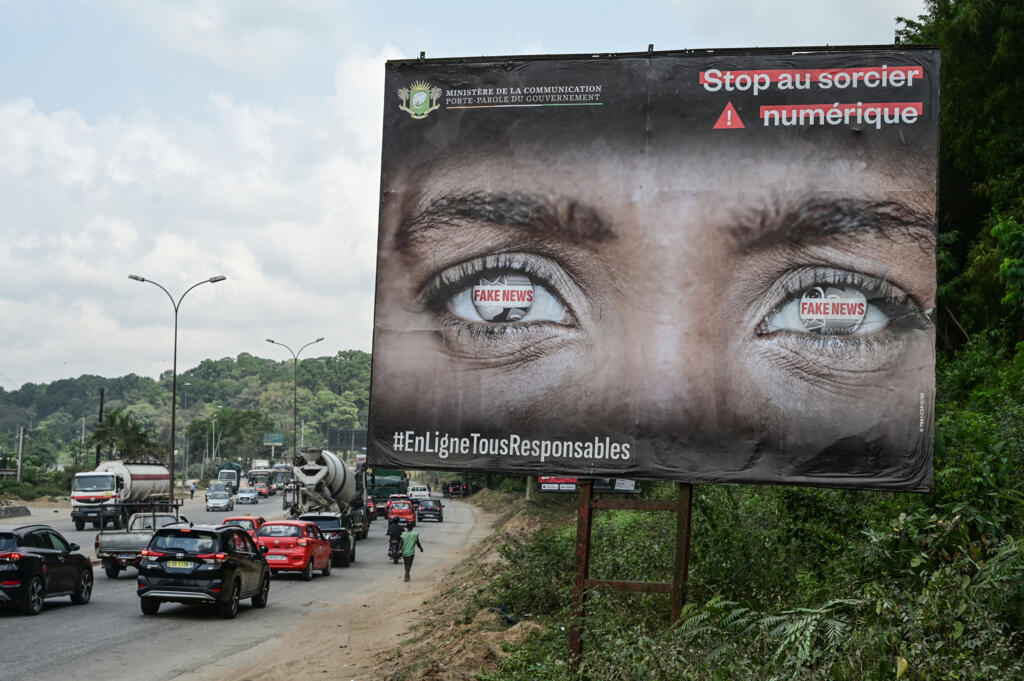
Abidjan, Côte d'Ivoire – Online disinformation from at home and abroad is ringing alarm bells as Côte d’Ivoire prepares to vote in a presidential election next week. Media experts in Abidjan told RFI about the struggle to keep fake news from disrupting a key vote.
Ahead of polls on 25 October, concern has been raised about false narratives spreading on social media, including AI-generated content. Some claim violence at protests, others unfair campaigning.
"On digital social networks, particularly TikTok, there are a lot of rumours and misinformation circulating about possible violence and forms of destabilisation that might take place or are currently taking place," says Joel Djaha, a sociology PhD student at Félix Houphouët-Boigny University in Abidjan.
"From my experience, they come mainly from online activists who are politically aligned, whether they are from opposition parties or the party in power."
When Ivorians go on social media, said Assane Diagne, French-language editor of The Conversation Africa and former editor of fact-checking platform Africa Check, it's easy to get the impression that the situation could blow up at any moment.
"I'll give just one example: a highly visited Facebook page in Côte d'Ivoire, Cash Ivoire, which recently presented a video that went viral. The video claimed to be proof of a strong mobilisation, with hundreds of people running and singing," Diagne told RFI.
"The same video was posted last week by Malagasy internet users. Upon verification, this video was filmed in Haiti."
How Gen Z is taking the fight for their rights from TikTok to the streets
Turbulent history
Social media's potential to inflame tensions is concerning in a country whose electoral history has been marred by turmoil.
In the 2010 presidential race, Alassane Ouattara challenged then incumbent Laurent Gbagbo. He contested Ouattara's victory, triggering violent clashes that left more than 3,000 people dead.
A military intervention led to Gbagbo's arrest, followed by a trial at the International Criminal Court for crimes against humanity. It ended in acquittal.
Gbagbo's Front Populaire Ivoirien boycotted the next election in 2015 in protest. Its absence helped Ouattara to re-election.
In 2020, the sudden death of Amadou Gon Coulibaly, the ruling RHDP party’s designated candidate, prompted Ouattara to run for a controversial third term. That election, held amid heightened tensions and the Covid pandemic, saw inaccurate information, widespread disruptions, the closure of polling stations and low voter turnout.
As Côte d'Ivoire prepares to vote again, Ivorians fear a return to violence, stoked by some of the same narratives.

In the run-up to this month's election, rumours spread around the origins and dual nationality of opposition candidate Tidjane Thiam, who renounced his French citizenship in order to run.
These identity-based controversies are potent because they tap into issues that have caused conflict in Côte d’Ivoire’s past – such as who has a claim to “Ivoirité”, or being truly Ivorian.
Both Thiam and Gbagbo were disqualified from the vote, and authorities have banned protests over their exclusion. Reports of violence by protesters are at the core of the rumours circulating.
In such a context, it's easy to imagine that some opposition supporters might seek to amplify anger, says Hyacinthe Bley, a historian at Félix Houphouët-Boigny University.
"Their supporters have called to march to protest against their exclusion, and the authorities should let them express their anger, or else they will think that the current government just uses all means for repression to their advantage," he told RFI. "That cannot be good for a peaceful election."

Outside interference?
Alongside domestic tensions, international observers have raised concerns about possible outside interference. Analysts warn that Côte d’Ivoire could be the target of foreign operations that aim to sway political narratives.
Diagne says the election is of interest beyond Côte d'Ivoire. The country's economic weight in the region, and particularly within the West African Economic and Monetary Union, means "it interests all of West Africa, and Africa in general".
The vote is taking place amid shifting regional dynamics, as several Sahel states where military rulers have seized control reject former colonial power France in favour of closer ties with Russia. Ouattara opposed the coups in Burkina Faso, Mali and Niger, and has maintained good relations with France.
Earlier this month, Côte d'Ivoire's National Agency for Information System Security flagged an online disinformation campaign linked to the Sahel juntas, especially in Burkina Faso, which saw scores of social media accounts spread false reports that Ouattara had died and a violent uprising had begun.
Sahel juntas in online bid to disrupt polls in Côte d'Ivoire
Mohamed Kebe, a journalist, fact-checking specialist and media consultant, says several pieces of false information currently being shared on social media are linked to the Alliance of Sahel States, composed of the three military-led countries.
"It's very important to take them seriously. Because these issues can be a source of serious tension," he told RFI.
But some observers are sceptical. “Burkina Faso has enough problems,” says Bley, “and many Burkinabe live here in Côte d’Ivoire, so any backlash against them could be really bad for Ouagadougou. That’s why I don’t believe Burkina has any interest in destabilising Côte d’Ivoire.”
Efforts to counter false information
In a pre-election assessment published last month, the International Republican Institute relayed concerns about the proliferation of false narratives around the Côte d’Ivoire vote on social media, "exacerbated by low digital literacy and foreign malign influence".
It recommended more efforts to counter distorted information, as well as digital literacy programmes.
The government has been seeking to raise awareness of online manipulation. In 2023, it launched a national campaign – named #OnlineAllResponsible – to warn people not to believe everything they see on the internet.

For Kebe, people are most susceptible to fake news if it confirms their political views.
"If you're in the opposition and your party produces false information, even if you think it's false, you choose to believe it because it follows an agenda. It's the same for the ruling party," he told RFI.
Kebe believes that the authorities have taken appropriate measures to crack down on people who produce false information. He also points to independent organisations such as fact-checking platform IvoireCheck that "fight against false information on a daily basis".
Diagne adds that social media can also be part of the solution, if put to good use. "It can help raise awareness and raise consciences," he said.
Djaha, meanwhile, has faith in Ivorians' digital literacy. “Ivorians know about the internet, what happens the day before elections and what is being said,” he told RFI. “They have a culture of digital reading and I think that it won't really have too much influence.”







